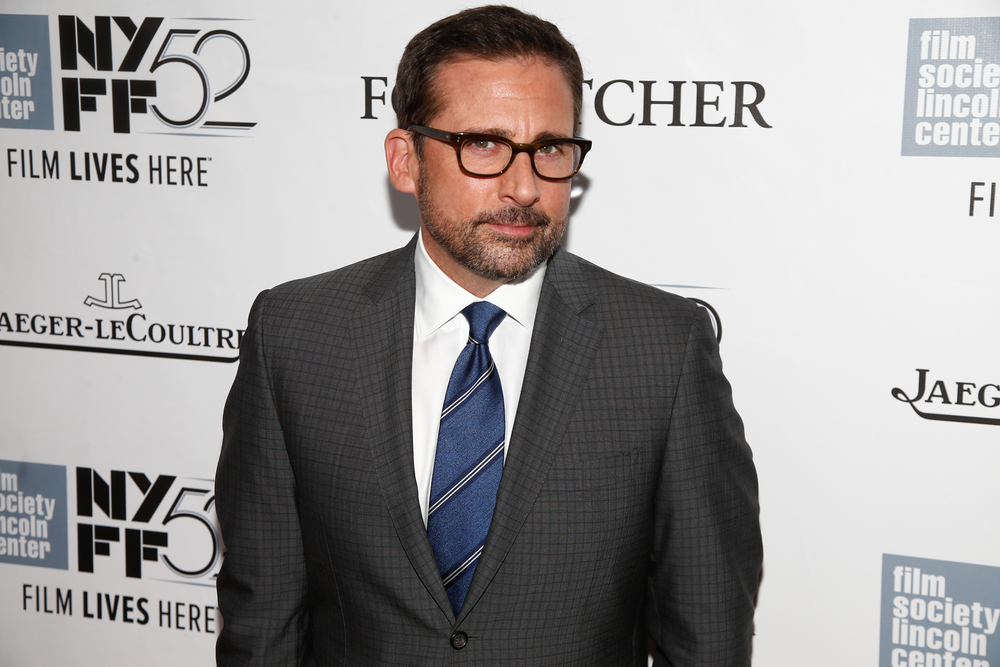
TORONTO — While discussing “Foxcatcher” — a bleak film, based on an unsettling tragedy, that made its way to screen after a punishing shoot — there’s really only one instance where Steve Carell’s voice rises above a sombre whisper.
In fact, he even breaks out laughing, and oddly enough, the topic at hand is director Bennett Miller’s admission that he cast Carell as ominous multi-millionaire John du Pont because he saw a certain darkness in the usually goofy comic actor.
“As he describes it, he felt that my public persona is sort of a benign one — as was du Pont’s. No one expected him to do the thing that he did,” said Carell during the Toronto International Film Festival.
“As he described it to me, he felt that it was beneficial to the movie to have someone who you wouldn’t necessarily think could do something horrible. But at the same time, it happens, I guess he saw, as he describes it, there was a dark –”
Here, he trails off and giggles, in his unique way.
“I laugh about it. It sounds funny for me to describe him saying that there’s a dark side to me,” he said, chortling again, before collecting himsef.
“But apparently he saw something, when we first met, that there was a quality there that he seemed to pick up on.”
Carell would reward that hunch several times over with a chilling, transformative performance that should, if the pundits are to be believed, land him an Academy Award nomination.
The 52-year-old portrays du Pont, a hermetic eccentric who took a toxic interest in the life of an Olympic gold medallist wrestler, Mark Schultz (Channing Tatum), and his similarly decorated brother, Dave (Mark Ruffalo).
The real Mark Schultz was a presence onset during the making of the film, as were others involved in the grisly tale.
Carell, vaguely recognizable under the weight of grey-toned facial prosthetics, seemed to skulk about the set in fitting isolation. In the film, he drips his lines out slowly, wearing an expression of inscrutable distance — and seemingly that distance remained when the cameras stopped rolling.
“We didn’t get to know each other as ourselves as we were shooting,” said the Golden Globe winner of his castmates.
“It wasn’t in a pretentious way. We weren’t deciding to be all method-y, all serious actor-ish. But at the same time I think we both realized it would be better for the movie and for our characters’ relationship to keep each other at a distance, and we did.”
That’s actually one of two instances in which Carell worries about sounding “pretentious.” Twice also, he takes pains to explain that he doesn’t want to be “precious” as he describes the craft behind the performance.
Best-known for comedies (“The 40-Year-Old Virgin,” “Despicable Me,” “Crazy, Stupid, Love,” and “Anchorman” among them), Carell is in unfamiliar dramatic territory here and is seemingly determined not to become the cliche of the comic actor desperate to be taken seriously.
“I never really thought about it,” he replied when asked whether expanding his onscreen repertoire appealed to him. “I read the script and I thought it was an extraordinarily rich story. I never thought about whether I could or couldn’t do it. I’m always just happy to be working, and this seemed like an excellent thing to be a part of.”
To understand his character, Carell absorbed footage compiled by du Pont for a self-commissioned documentary.
He studied his posture and his strange speech patterns, and began to feel he was gaining an understanding of the bizarre man.
“I think there’s a great sadness to the man,” Carell said. “I think he was very sad, very lonely. I think he possessed a quality that most people have, and that’s the need, desire, to be loved, to be cared about, and to be respected. I think he was the victim of many things in life, in terms of his upbringing, in terms of his wealth and privilege. I think it served to separate him from the things that he wanted most. So it was a double-edged sword and it was tragic.”
Carell’s dedication to “Foxcatcher,” which opens Friday, was shared by his cast. Tatum, who along with Ruffalo ground his body into exhaustion shooting the film’s wrestling scenes, has described the shoot as downright unpleasant.
The actors were driven by a sense of responsibility to the people whose lives inspired the movie.
“Bennett and I had a very telling moment at one point,” said Ruffalo in a separate interview. “We were having a little argument and I said: ‘Not for nothing Bennett, but at this point me, Steve and Channing know way more about these characters than you ever will. And that’s our job. So the best thing is to just let us do it at this point. Have some faith in us.’ It was the job he gave us to do.”
Still, as Carell explored his so-called dark side, he was happy to do so away from the two kids he’s raising with wife and fellow former “Daily Show” graduate, Nancy Carell.
“We shot out of town, so I wasn’t home for the better part of it. I tried to go home every other weekend,” he said. “I think it was best that I wasn’t at home. Not to sound too pretentious about the whole thing,” he begins, again, “But it was difficult letting go of it at the end of the day. I think everyone took it seriously and knew that there was a responsibility to what we were doing because these are real people. So I didn’t take it home and I think it was actually beneficial that we didn’t shoot near where I live.”